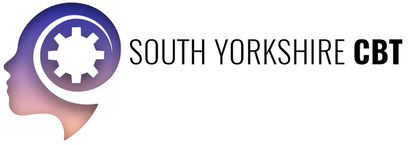CBT For Health Anxiety
Cognitive Behavioural Therapy (CBT) can be effective in treating health anxiety. Also known as illness anxiety disorder or somatic symptom disorder, is a condition characterized by excessive worry or fear about having a serious illness despite having no or only mild symptoms. CBT can help people by addressing the cognitive (thought) and behavioural (action) aspects of their anxiety.
How CBT can be used to treat health anxiety:
Cognitive restructuring: CBT therapists work with clients to identify and challenge negative and unrealistic thoughts related to health-anxiety. This may involve helping clients recognize and reframe catastrophic or distorted thoughts about their health, such as jumping to worst-case scenarios or interpreting minor symptoms as evidence of a serious illness. The therapist may help the client examine the evidence for and against these thoughts, and develop more balanced and realistic thoughts about their health.
Education about normal bodily sensations: Health anxiety is often fuelled by misinterpretation of normal bodily sensations. CBT therapists may provide education to clients about normal bodily sensations and help them develop a more accurate understanding of how the body works. This can help clients learn to differentiate between normal sensations and symptoms of a serious illness, reducing anxiety and reassurance-seeking behaviours.
Exposure and response prevention: CBT therapists may use exposure and response prevention techniques to gradually expose clients to their feared health-related situations or triggers, and help them resist the urge to seek excessive reassurance or engage in safety behaviours. This can help clients confront and overcome their anxiety-provoking situations, and develop healthier coping strategies for coping.
Behavioural activation: CBT therapists may work with clients to identify and modify avoidance behaviours and develop healthier coping strategies for managing health anxiety. This may involve engaging in activities that promote relaxation, self-care, and well-being, and gradually reintroducing activities that have been avoided due to anxiety.

Anxiety management techniques: CBT therapists may teach clients various anxiety management techniques, such as relaxation exercises, diaphragmatic breathing, and mindfulness techniques, to help them manage anxiety symptoms and reduce physiological arousal associated with health anxiety.
Addressing safety behaviours: Health-anxiety often involves engaging in safety behaviours, such as excessive checking of the body, seeking reassurance from others, or avoiding situations that trigger anxiety. CBT therapists may help clients identify and modify these safety behaviours, as they can reinforce and maintain health anxiety.
Coping skills: CBT therapists may help clients develop healthy coping skills for managing health-anxiety, such as cognitive coping strategies, problem-solving skills, and stress management techniques. These skills can empower clients to effectively manage health anxiety in their everyday lives.
CBT for health-anxiety is typically a structured and time-limited therapy that aims to help individuals develop more realistic and adaptive thoughts, behaviours, and coping skills related to their health concerns. However, it’s important to work with a qualified and experienced CBT therapist who can tailor the treatment to the unique needs and circumstances of the individual client.

CBT For Healing Health Anxiety
Contact Clare today more information about the services we can offer.

